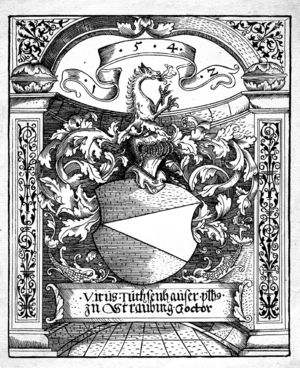User:Pedro Sá Couto/Exlibris: Difference between revisions
No edit summary |
No edit summary |
||
| Line 18: | Line 18: | ||
[[File:exlibris_python.png|300px|]] | [[File:exlibris_python.png|300px|]] | ||
==CRITERIA== | |||
Collectors of book-plates assign four standards on which they base their choice : | |||
1. The date of the workmanship shows the plate to be an early example. From Mrs. Russel's collection it has been possible to make a fairly good chronological arrangement, beginning with an English plate of 1695. | |||
2. The plate has an intrinsic beauty. All of the Goodhue and many of the Spenceley plates show much thought and fine workmanship. | |||
3. The plate was designed or engraved by a celebrated artist. The Cruikshank, William Blake, and Timothy Cole plates are examples. | |||
4. The plate belonged to a person interesting, historically or otherwise. Among the plates of notables in this collection are those of David Garrick, Darwin, Charles Dickens, Daniel Webster, Theodore Roosevelt, William H. Taft, Marion Craw- ford, Robert Lansing (designed by himself), Richard Grant White, Austin Dobson, Henry Drummond, Hamilton Wright Mabie, and Burke Cockran. The Roosevelt plate shows a rose springing from their native veldt; Marion Crawford's yacht is anchored at the base of the Sorento cliff on which his house stood. Herman Gade's plate has a Swedish homestead, presumably the ancestral home. Mr. Gade has written a work on boo | |||
Revision as of 17:12, 6 November 2019
Ex libris
WHY AND WHEREFORE
In days when a book was a valuable possession book-plates often carried a warning to the borrower such as the one used by John Hughes, a German of the 17th century, which, translated, read:
"By him who bought me for his own,
I'm lent for reading, leaf by leaf.
If honest you'll return the loan,
If you retain me, you're a thief."
Book-plates were used also to record the fact of a gift and the name of the maker of it, especially in the case where the recipient was an institution. The early book-plate of Harvard College was large, most elaborate and exquisitely design.
M., C., 1916. EX-LIBRIS. Bulletin of the Detroit Museum of Art 10, 8–12.
CRITERIA
Collectors of book-plates assign four standards on which they base their choice :
1. The date of the workmanship shows the plate to be an early example. From Mrs. Russel's collection it has been possible to make a fairly good chronological arrangement, beginning with an English plate of 1695.
2. The plate has an intrinsic beauty. All of the Goodhue and many of the Spenceley plates show much thought and fine workmanship.
3. The plate was designed or engraved by a celebrated artist. The Cruikshank, William Blake, and Timothy Cole plates are examples.
4. The plate belonged to a person interesting, historically or otherwise. Among the plates of notables in this collection are those of David Garrick, Darwin, Charles Dickens, Daniel Webster, Theodore Roosevelt, William H. Taft, Marion Craw- ford, Robert Lansing (designed by himself), Richard Grant White, Austin Dobson, Henry Drummond, Hamilton Wright Mabie, and Burke Cockran. The Roosevelt plate shows a rose springing from their native veldt; Marion Crawford's yacht is anchored at the base of the Sorento cliff on which his house stood. Herman Gade's plate has a Swedish homestead, presumably the ancestral home. Mr. Gade has written a work on boo

